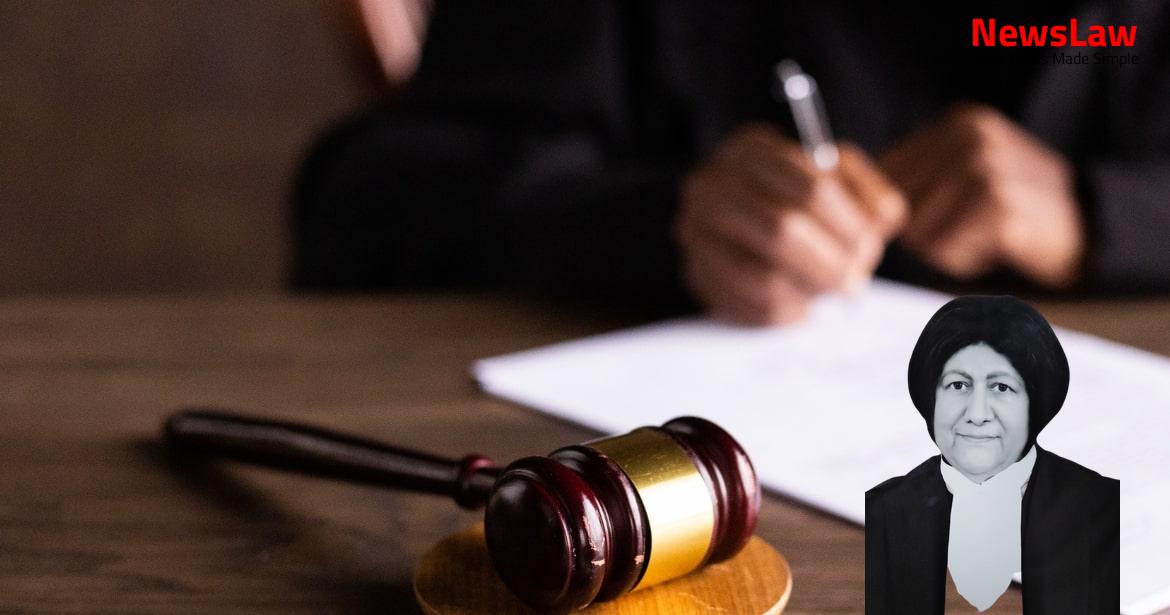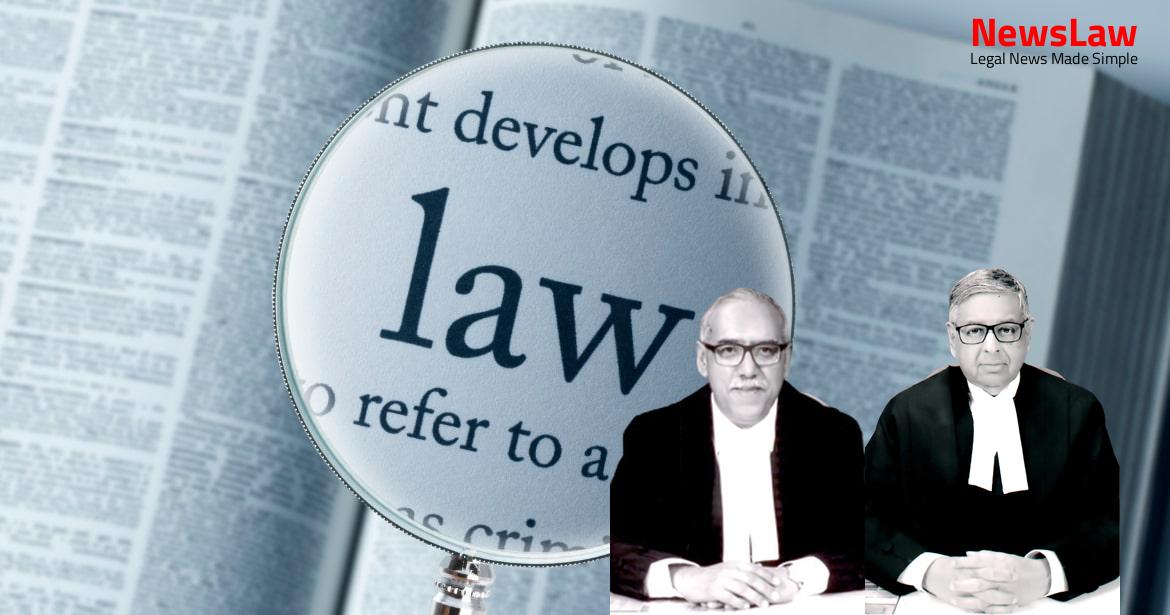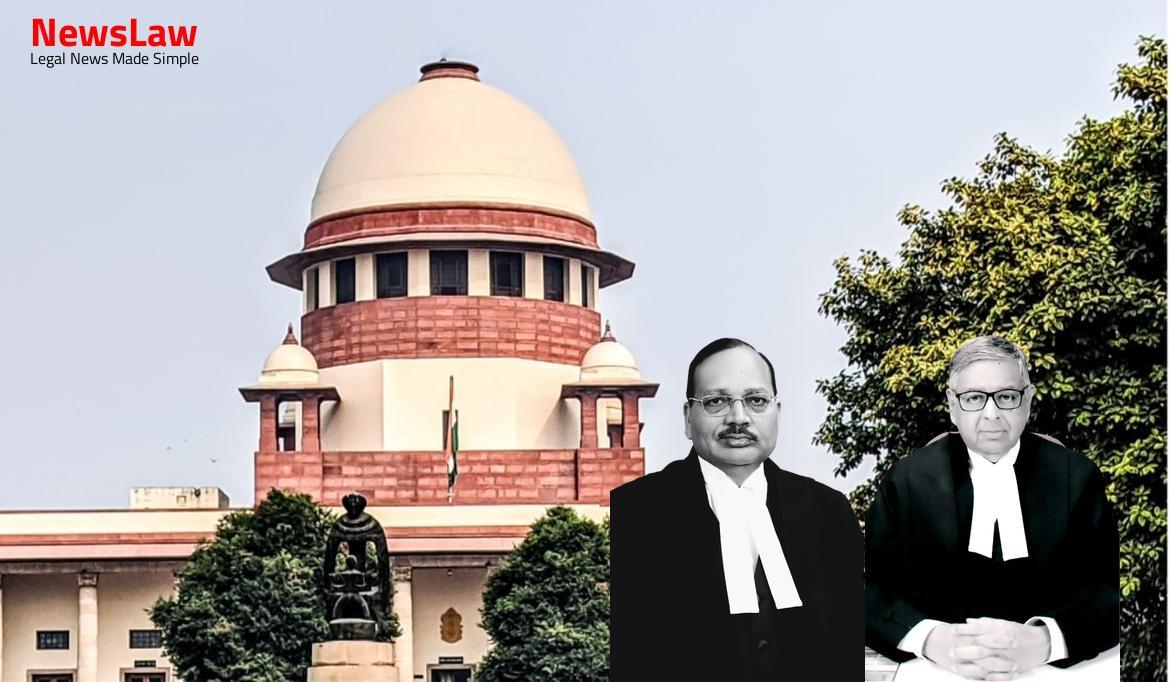The recent legal case delves deep into the intricate analysis by the court regarding the insufficiency of evidence in a circumstantial case. Emphasizing the importance of proving guilt beyond reasonable doubt, the court revisited the burden of proof on the prosecution and the benefit of doubt entitled to the appellants. The judgment sheds light on the complexities of legal reasoning and the meticulous examination of evidence in reaching a verdict.
Facts
- The victim, a young girl, was kidnapped and murdered.
- The victim’s body was found in a field after a raid at the accused’s house.
- Post-mortem revealed the cause of death as manual strangulation and smothering.
- Chemical analysis showed the presence of Aluminium Phosphide in the victim’s viscera.
- The prosecution presented 20 witnesses to support their case.
- Witness accounts varied, with some turning hostile during the trial.
- The accused were identified as being involved in the kidnapping and murder of the victim.
- Several injuries and signs of forceful penetration were found on the victim’s body.
- The informant, father of the deceased, provided information to the police and chased the motorcycle used in the kidnapping.
- The investigation led to multiple arrests and recoveries of items belonging to the victim.
- One of the accused was on bail but went absconding after the appeal was dismissed.
- Trial Court found Yogesh, Sumit, Pardeep, and Anuj guilty under Section 302/120-B/34 IPC and sentenced them to life imprisonment with a fine of Rs. 20,000/-
- Charges under Sections 364-A and 376 IPC were not proved against the convicted accused
- Rest of the accused were acquitted of all charges
- Yogesh, Sumit, Pardeep, and Anuj appealed their conviction and sentence at the High Court
- Witness PW10 testified to seeing the accused, Yogesh driving a motorcycle with Sumit as a pillion, abducting his daughter
- State did not appeal against the acquittal of other accused or the acquittal of convicted accused on charges under Sections 364-A and 376 IPC
- High Court upheld the convictions of the four accused based on the evidence of PW10
Also Read: Electoral Malpractices in Mayor Election
Analysis
- Out of the three claimed eyewitnesses, two witnesses turned hostile and did not identify the accused as the kidnappers.
- The witness, PW10, who was the informant and victim’s father, is the only reliable eyewitness according to the evidence on record.
- PW10’s account is also questioned as he was inside the house when the incident occurred and only came out after hearing shouts.
- The High Court’s reliance on PW10’s version was deemed to be incorrect.
- The State’s submissions were presented by MS. Alka Agarwal, the learned AAG for the State.
- Close relations of the victim, including PW10 and the victim’s mother, were not shown to be under pressure or suspicion regarding their testimonies.
- The prosecution failed to establish the guilt of the accused solely based on eyewitness testimonies.
- The post-mortem report indicated sexual assault on the victim, but there was no connection established between the accused and the sexual assault.
- The victim’s body was discovered in an open field, with unclear details about the arrests of the accused and the recovery of the body.
- Recoveries of clothing and personal items from the victim were made, but alone they were deemed insufficient as evidence to prove guilt beyond a reasonable doubt.
- The circumstances lacked conclusiveness and did not form a consistent chain excluding all hypotheses except the guilt of the appellants.
- Disagreement with the lower courts’ view was based on the insufficiency of evidence in this circumstantial evidence case.
- The prosecution has failed to prove the case beyond reasonable doubt
- The appellants are entitled to the benefit of the doubt
- The burden of proof lies with the prosecution
Also Read: Balancing Power and Transparency: Electoral Bonds Struck Down, Disclosure Mandated
Decision
- The court allows the appeals and sets aside the orders of conviction and sentence against each appellant.
- The appellants are to be released immediately unless they are needed in connection with another crime.
Also Read: Recall of Resolution Plan Approval: Legal Analysis
Case Title: YOGESH Vs. THE STATE OF HARYANA (2021 INSC 231)
Case Number: Crl.A. No.-001306-001306 / 2017



